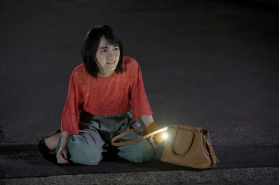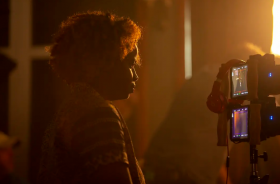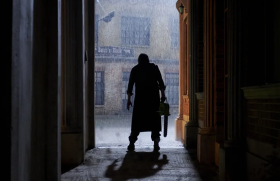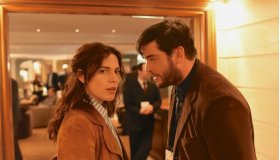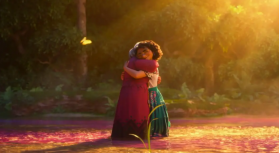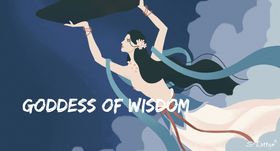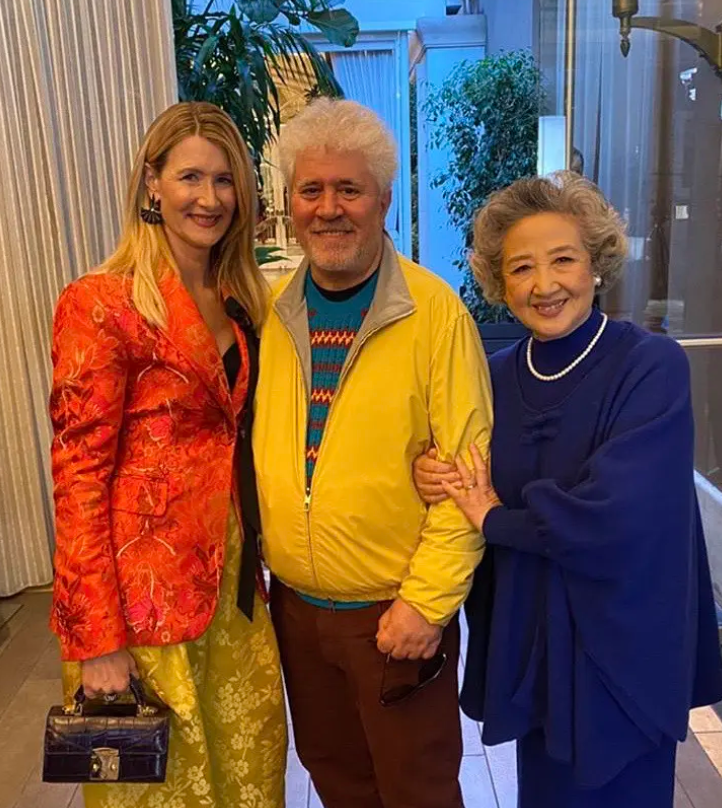
Nothing is more precious than family

From the release of the first all-Asian Hollywood film "The Joy Luck Club" in 1993 to the success of "Crazy Rich Asians" 25 years later, it is clear that such films depicting the clash of Eastern and Western cultures have always been a subject of great interest to audiences on both sides. The film is based on her own personal experience and explores the traditional mindset of Chinese families from her perspective of living in the United States since she was a child.
Is "Don't Tell Her" good?
Perhaps because of the traditional culture handed down from the past, or perhaps because of their own religious beliefs, there has always been a great difference between Eastern and Western attitudes towards life and death. Therefore, "Don't Tell Her" focuses on the different responses and reactions of family members with different backgrounds when their loved ones are diagnosed with terminal cancer, in order to present the conflicts that are bound to exist between people.
OCU27_XMQ%407P~B7)0RT.png?1653128376903)
If Li An's 1993 film "The Wedding Banquet" was intended to reassure the elders that a fake marriage would end up with them coming to the United States to plan the wedding, it presents the collision of Western liberal and Eastern conservative ethical values, while "Don't Tell Her" is the opposite, through a plan to hide her illness from her grandmother and to allow the family to visit her home in the name of the wedding without making her suspicious. Through a plan to conceal her illness from her grandmother and to allow her family to visit her in the name of a wedding without her getting suspicious, the protagonist, Billie, who is Chinese American, comes to China to learn about the cultural differences between herself and the rest of her family.
More than just an East-West conflict
Interestingly enough, "The Wedding Banquet" and "Don't Tell Her" are seemingly different stories about gay people and life and death, but they both come back to the same path of family bonding and understanding. Don't Tell Her" starts from the perspective that Billie, as an American, can relatively accept and conform to reality, and through her inability to agree with the taboo and avoidance of life and death in Eastern society, it brings out the different views of the two sides and then extends to the cultural and social status quo of the East and West.
In a scene at the dinner table, the mother, who has lived in the United States for many years, and her aunt, who was born and raised in China, exchange ideas about the Chinese family, the independent and open-minded American, the conservative and closed-minded Chinese, the free and open American, and finally the progress and development of China in recent years and the social security problems in the United States, all show that "Don't Tell Her" tries to use the conflicting values of the two identities and the advantages and disadvantages of each of the two countries. The film's theme of ethnic identity and self-belonging can be seen in the clash of values between the two identities and the reality of the two countries, each with its own strengths and weaknesses.
The collective and the individual in "Don't Tell Her
In the hotel, the older man says to Billie, "There is a difference between the East and the West in terms of life as a collective and an individual." Although this is not entirely true, sometimes it is as if Billie cannot accept the family's decision not to tell her grandmother about her illness, and these very different values do exist. "I think this is just a way and excuse for him to use his position as an older person to make his younger generation accept his viewpoint.
The eldest said, "I didn't tell her the truth because I wanted to share the stress of the disease with the whole family." But how is this not an escape from our own lack of courage to let her know she is leaving and to say goodbye to each other properly at the end of her life? In the end, we may not agree with the value of "Don't tell her", but isn't that how society works? There will always be differences in thinking between individuals and communities, and what we can do is not to criticize and challenge, but to moderately try to accept, adapt, tolerate and understand.
The rich themes of "Don't Tell Her”

The brilliant thing about "Don't Tell Her" is that it takes what was originally thought to be a story about two sides "looking at life and death" with different attitudes and uses what Billi sees and hears during the wedding, her inner turmoil and her interactions with her family members, to make the film's scope incredibly broad. "What if she wants to say goodbye?" Billie asks a question with a seemingly obvious answer, but one that can never be answered. People see the wedding as a once-in-a-lifetime big day, but neglect that it's the time after the wedding that matters. And how much care and companionship do the family give to Grandma when they see the last stage of her life as so important?
Don't Tell Her" reveals the most reluctant contradictions in Chinese families, whether it's the fact that the family members scattered all over the world only get together when the mother is about to pass away, the fact that they rarely care about their family members but only know how to cherish them when they are about to say goodbye, or the fact that everyone is gathered around a round table to eat a meal that symbolizes reunion but the atmosphere becomes sad and silent because of everyone's mood. The contrast between the images and the story is used to present the hidden problems of the family that have existed for a long time but were not finally seen until the grandmother's cancer.
The character growth in "Don't Tell Her

As she returns to China, where she has been away for more than 20 years to visit her grandmother, Billi moves from a small family of three to a family that gathers around a large round table for every meal. This seemingly incompatible and incongruous feeling is what I think Wang Zi Yi, as a Chinese-American director, wanted to convey through "Don't Tell Her".
I really like the interaction between the grandparents and the grandchildren in "Don't Tell Her", from the phone calls between them, the grandmother noticing that something is wrong with Billie right after meeting her, to tell her to exercise more to get rid of the poisonous gas, all of them make me feel the deep feelings they have for each other. Therefore, this time I came back to China not only to visit my grandmother and realize the cultural differences between the two sides, but also from her most sincere encouragement: "Life is not what you do, but how you do it." The encouragement was the motivation to get up the courage and move forward towards one's goal.
The interpretation of love in "Don't Tell Her
Returning to the main axis of "Don't Tell Her" about "good lies" and cultural differences, just as Grandma did not want her family to know that she went to the hospital to change her medicine, Billie deliberately hid the fact that she did not get the scholarship because she did not want her family to worry about her. In fact, our life is always a tug between the individual and the group. There is no such thing as East and West, but rather the emotions that everyone has for their family, and the hope that they can have a family to rely on when they encounter setbacks and get the support of "believing that they will succeed in the end" from them.
I like the fact that "Don't Tell Her" does not capture the external stereotypes of Westerners towards the East, but rather the logic of people's thinking and the traditional culture of many weddings and funerals to present the "love" of both sides, although they have different ideas and values due to the time and space in which they grew up, essentially they all think about their families and never want them to suffer too much. The "Love". After watching "Don't Tell Her", I can't help but think of my parents and grandmother, and other family members in my hometown, who have become the safest and most helpful safe haven when we are confused.
Review Conclusion
On the whole, "Don't Tell Her" is a film with many seemingly absurd but realistic plot designs that present the Eastern mindset and society, along with a beautiful composition and a rather charming soundtrack, not to mention the performances of the two main actors, Okafina and Zhao shuzhen, which make this film quite good and complete, with warmth, hilarity and many thought-provoking issues. Although the opening scene of "Don't Tell Her" tells the audience that the story comes from "a true lie", the director still holds back on many things and sincerely gives the audience the space to think for themselves without pretending.




